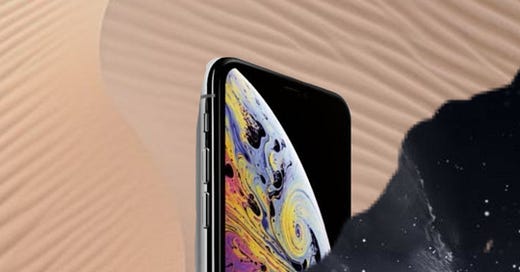El libro de arena 2.0 | The Book of Sand 2.0
Borges y el miedo al infinito | Borges and a fear of the infinite. English translation follows the original.
El libro de arena 2.0
Borges y el miedo al infinito.
Cada tanto, cuando me siento mala argentina por no vivir en el país ni comer carne, releo a Borges. No sé por qué a Borges, dado que con él no comparto más que un idioma y una miopía galopante. Prefiero a Cortázar, sus influencias freudianas, sus personajes que se dejan conocer. Sin embargo, pasada desapercibida otra fiesta nacional, tomé de mi biblioteca “El libro de arena”.
El libro se abrió solo al cuento titular. Subrayando con el dedo, repasé las primeras líneas, dedicadas a esa geometría borgeana. El narrador abre la puerta a un vendedor de biblias quien le muestra un libro tan infinito como la arena. Cada configuración del libro es única, irrepetible. Luego de trocar una biblia y el monto de su jubilación por el objeto, el narrador se obsesiona con el libro, hasta quedarse sin más remedio que esconderlo en la Biblioteca Nacional.
Cerré mi copia, impactada por el miedo del anciano. Su terror y decisión de hacer perder ese objeto me parecieron justificados. Mientras pensaba en la recepción que semejante ciencia ficción hubiera acogido en el 1975, mi mano derecha buscó los ejes lisos de mi celular. Arrastré mi índice por el pequeño monolito y ni bien despertó, apreté un botón para callarlo nuevamente.
El reflejo involuntario me dio pausa, y me pregunté si en su delirio, el Borges narrador también sorprendía a su mano manoteando el aire, buscando ese infinito. El cuento revela que, enloquecido por esa magia, él padeció de insomnio, de paranoia, de una misantropía agudizada. “Quién no”, exhalé.
The Book of Sand 2.0
Borges and a fear of the infinite.
Every so often, when I feel like a bad Argentine for not living in the country or eating meat, I re-read Borges. I'm not sure why him, since all we share is a common language and a terrible myopia. I prefer Cortázar, with his Freudian influences and characters that allow the reader to know them. Despite this, after forgetting another yet another Argentine holiday, I picked up "The Book of Sand" from my bookshelf.
The book fell open to the title story. Tracing the written lines with my finger, I went over the first few sentences, with its typical Borgesian geometry. In the story, the narrator opens the door to a Bible salesman who shows him a book as infinite as sand. Every configuration of the book is unique, unrepeatable. After exchanging a Bible and his pension for the oddity, the narrator becomes obsessed with the book, to the point of being forced to hide it from himself in the National Library.
I closed my copy, struck by the old man's fear. His terror and eventual decision to make the object disappear seemed justified. As I thought about how the science fiction might have been received in 1975, my right hand reached for the smooth edges of my cellphone. I dragged my finger across the small monolith and as soon as it awakened, I pressed a button to silence it again.
The involuntary reflex gave me pause, and I wondered if, in his delirium, Borges' narrator also found his hand grasping at the air, searching for that infinity. The story reveals that, driven mad by this magic, he suffered from insomnia, paranoia, and an aggravated misanthropy. "Yeah, who wouldn't," I thought.





Si tu abuela viviera, no cabria el orgullo en su cuerpo!!! 👏👏👏
me gusto la idea de vincular un libro infinito de los '70 con nuestra pantallas de hoy que son un remedo de lo infinito...